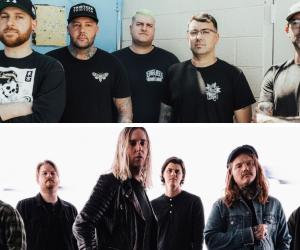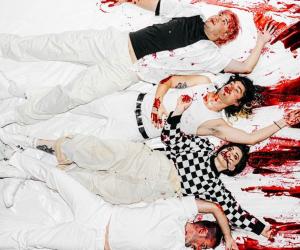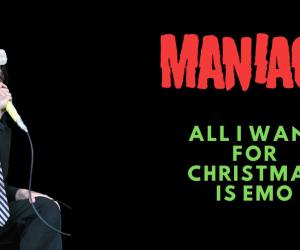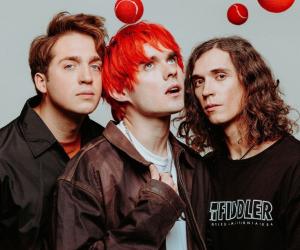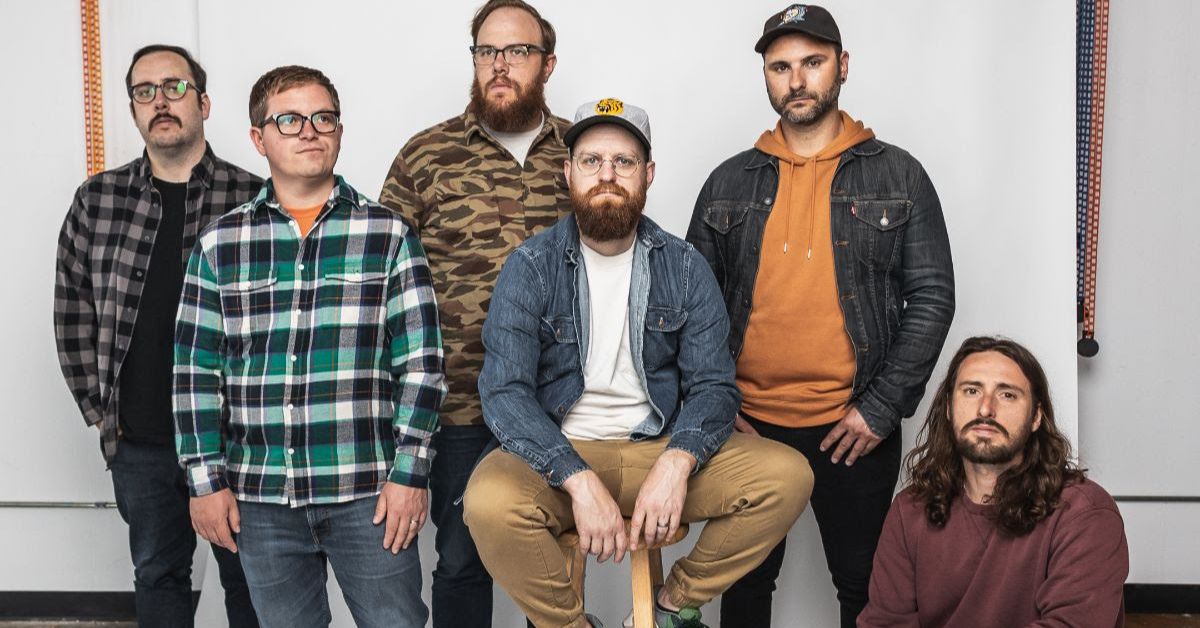
To a sizable segment of modern pop-punk fans, Dan ‘Soupy’ Campbell’s words might as well be gospel. As the vocalist and primary songwriter for the Philadelphia success story The Wonder Years, Campbell has always had a knack for writing lyrics that speak straight to the heart and for belting out those lyrics in a trademark evocative tone that cuts through the noise like few others in the genre space. He is a man that has inspired as many tattoos as he has Tumblr posts and as anyone who frequented this corner of the internet in the mid-to-late ‘00s would know, he inspired a lot of Tumblr posts.
After seventeen years fronting one of the scenes' most beloved acts, he’s inspired a lot of copycats too, influencing a new generation of lyricists unafraid to bare both their penmanship and their soul to the world. It’s the relatability that drew them in and it’s the relatability that continues to maintain that connection, as both The Wonder Years' music and the man writing it continues to grow up alongside them.
The band’s seventh full-length album, The Hum Goes On Forever finds the band continuing that growth as they face up to an onslaught of things outside of their control; a scenario that's only further exasperated by the fact that it's also the first album they've made since Campbell became a father.
Named for a poem in the booklet for their 2018 album Sister Cities, The Hum Goes On Forever is a self-referencing masterpiece. It's a revealing representation of how the six members have all grown together as musicians; they know when to be restrained and when to explode, filling in space and emptiness as needed to create a record that mirrors the heart-torn urgency at its core.
In the lead-up to the release of The Hum Goes On Forever, Campbell was kind enough to join us for a typically emotive and honest discussion about both the challenge and the joys of parenthood, the crushing impact of the pandemic era, the pressure of being seen as the voice of a generation by a passionate segment of fans, and a heartfelt desire to make The Hum Goes On Forever,’ the best Wonder Years album ever.
The Hum Goes On Forever drops this Friday. What is it about this record that has you enthused to share it with the world?
“In a few words, it's the best Wonder Year's record. I’m not going to pull any punches on it, it’s better than the other ones!”
After the few listens I've had, I'm not inclined to disagree with you and the primary reason for that is the way it seems to bring together all of the musical growth and personal growth that the band has experienced in the last decade and a half together in a way that makes it feel like the quintessential Wonder Years record. Does it feel that way to you?
“I mean, that was kind of the goal. To stop and think about the band and what makes the band the band. Part of that was due to the isolation of the pandemic and the way that quarantining makes you think about everything. And it's like, okay, well, who is this band? Who are we? What do we sound like? What's the shit that we think we do better than anyone else? Like, what are we the fucking best at? Do that! Don’t repeat yourself, but think about like, the foundation of what makes us and go build on that. Go and find new ways to build from that foundation. We had to make sure that we had the elements that make us, us and make sure those were present in the music.”
One of the core elements of your band has always been the relatability and honesty of your lyricism. There’s a whole fanbase that has watched you grow up through your lyrics and they’ve often found a lot of what you’ve been singing about directly applicable to their lives. Did you feel any pressure or responsibility heading into this album to live up to your past lyrical contributions?
“I feel there’s always pressure because I feel like if we are going to make a record, we should make it our best record. I feel like it is a disservice to fans to just release something because like it's time to, or because a contract says that you have to. If we're gonna bother to fucking get together and write songs and like go through that emotional labour that it takes to create that art, then we’d better make it worthwhile.”
“It’s not an easy or painless process, especially when you’re someone who writes lyrics the way that I do. If we’re going to go through all of that and make that record, then the bar is the last best thing that you did and you need to clear that fucking bar. So I feel like there’s always pressure, and I feel like there should be. Not like external pressure to outsell anything but rather internal pressure that we put on ourselves, what we demand of ourselves.”
I did read something where you were talking about how Mark Hoppus helped restore your confidence as a vocalist when you were working on Wyatt’s Song, which is a beautiful, beautiful song. Do you find that element more difficult, the actual singing and writing melodies element of being a singer, because it appears from the outside that the writing comes rather naturally to you?
"It wasn't necessarily as a vocalist as much as it was as a songwriter. Lyrically, I felt like I was in a good space. I think the thing that was bothering me was that I'm very used to feedback when we’re writing songs, you know? A lot of times, I’ll write kind of a little song skeleton with my acoustic guitar, I’ll write some melodies and lyrics, then I’ll play back like a verse or a chorus or whatever, but there’s very little implied rhythm and a lot less colour and sonic depth, but it’s the base of the song. I’ll usually then bring that to the band as soon as I’m done and say ‘hey I wrote this thing, let’s get to work’. Well, I couldn’t leave my house to do that. So that isolation had me second-guessing everything. I was thinking ‘is any of this shit any good?’. Because there was no feedback."
"Oftentimes we’ll also get to go on stage and play songs and see how they connect with people before we record them. But there was none of that happening either. So it made me wonder, “Am I good at this? Was I ever good at this?”. You start to really question yourself when you're alone for so long. I don't mean physically alone, my family was here with me, I mean alone artistically. So playing the song for Mark and having him tell me “these are really good songs, I think you're doing a good job.” That was affirming in a way that I felt like I needed at that moment."
Getting the approval from one of the granddaddies of your genre, had to reassure you that you're quite good at his though, surely?
“I mean, yeah, having the guy who made you want to play in this kind of band telling you he thinks the songs you write are really good. That definitely helped. It made me think “okay, okay, I guess I can do it, I guess he's probably right, I trust him.” Because when you’re alone for a long time, you stop trusting yourself and that was the core of the problem. I’d stopped trusting myself.”
It’s an interesting time for artists such as yourself, as, after a few years of a much slower pace of life, the need to return to the helter-skelter nature of life on the road is very real. Are you finding it hard to readjust at all?
"There are definitely elements of anxiety, that feeling that “oh my god, there are too many people in this room, I’m starting to freak out”. Then there’s also this thing that happens where I forget that I did age two years during those two years, that's how fucking time works right?"
We are the exact same age, and I do the same thing, frequently. I understand, completely!
"So my brain forgets, but what doesn't forget is my body. What does not forget are my muscles, my bones, right? I was fucked up on that last tour. My shoulder and neck did a thing when we were in LA, and I needed to be picked up and taken out of my bunk the next morning, I could not move. I had to go see like physical therapists and I had like cupping done and scraping and muscle relaxers and heat and like just all this shit. I'm noticing that my body does not stand up to it the way it used to. I've lost all that conditioning. You get really used to doing it and then, I slept in my comfy bed in my house for two years without having to jump around for two hours, and it turns out that you can't just snap back into that."
Now, one thing I picked up on this record, is that you've written another song (You're The Reason I Don't Want The World To End) that has lyrics that blend into one another similar to I Want To Sell Out My Funeral. I'm wondering when it comes time to write a song like that. Do you think of the lyrical connections first and construct the song around them? Or is it a matter of retrofitting elements of existing songs to create a new one?
This one was different, right? The melody existed before the song existed. The lyrics, were not the actual lyrics that ended up being on the finished product for a really long time. I'd written the song for a totally different purpose, a totally different set of lyrics before this and we played with it a bunch of different ways. I could never finish it, it was just pieces. It was like floating pieces of a song, just kind of like floating through creative space. And once it dawned on me that, “oh, wait, it should be the last song on the record, it should include this little piece from Doors I Painted Shut." That piece became like, the gravitational pull that pulled everything else that was floating aimlessly through space into orbit. All of a sudden, everything was aligned. I was like, “Okay, now I see the song, now I see how the energy flows, now I see when it gets to its peak.”
"So no, it did not come all at once. It is a long process like, and it's kind of one of those things where like when I say it took months, it's not like I was working on a non-stop for months, but it's just like, you know, every couple of days, you think about that song again, you think about where it is and where it needs to go, but still needs to be there. And one day just unlocked.”
The Hum Goes On Forever is a pretty intense listen, lyrically. There's so much honesty. You touched on the idea of feeling pressure earlier to top yourself, artistically with each record, do you ever feel like you're sharing too much of yourself with others?
"Maybe, maybe, I feel pressure every minute of every day. It's the kind of person I am, I don't want to let anybody down for anything. Like, one of the guys from Fireworks texted me about how we handle taxes on merch today, and I'm like, 'okay, I have both of my kids. One of them wants to play Spider-Man, the other one is hungry, and I have other work to do too', but instead of being like, 'hey, I'll get to this later', my brain goes, 'let's do everything right now.' So I'm like, answering with one hand, getting the baby's food together with the other one, and shooting fake spider webs with my feet. Is that easonable? No. But is it the way that I choose to live? Yes. If anybody needs me, I'm here, and so yeah, I'm always tired."
As a person who has been listening to your band since the mid-'00s, I have to say that it feels like your audience has grown up with you. Does it feel like that to you too? That you've been able to stay consistently relatable to the fanbase because they are more or less at the same stages of life as you, at all times?
"One of the things we wanted to do was write lyrics that were real and not pandering. We wanted to write songs about real things that were directly happening to me, that were what I was actually experiencing. Instead of writing what we think someone might like, or what might sell records. That's what has allowed that to happen. I'm not saying that the other way is bad, it's just not for us. When I was younger if I heard a song from an artist that made me feel I was being pandered to, that the artist didn't really believe, then it felt like I was being insulted. That's never been the art that I wanted to make. Again, not to say doing that is bad, all art has value and merit if it makes somebody feel something good, but it didn't make me feel something, and I want to make art that makes me feel."
I've got a couple of quick-ish questions before I let you get on with your evening. The first comes from the world of wrestling. If you could choose any song to play when you enter the room, wrestling style, what song would it be?
"You know what? When I was a kid, I always thought that I would walk out to Bruce Springsteen 'Streets of Philadelphia', which like listening back to now is not a good choice. But it is like the I don't know. It was like I just because we're from Philly. I don't know, I just felt like it was the right song. So I'm gonna stick with that as my answer."
Outside of music, what's something that you consider yourself to be an absolute Maniac for?
American football or basketball? Those are probably my number one and two right now. Oh and another one for my Australian friends, watching Bluey with my kids. We watch so much Bluey!
I'm curious as a writer or lyricist, who has had the most influence on your style?"
"I would say I have influential lyricists. I like Craig Finn, I'm a big Craig Finn fan, Jenny Lewis. John K. Sampson and Conor Oberst are all big influences on me lyrically."
The last one, if you had to name one album as the album that changed your life, what would it be?
'Something To Write Home About' by The GetUp Kids.
The Hum Goes On Forever is out now.
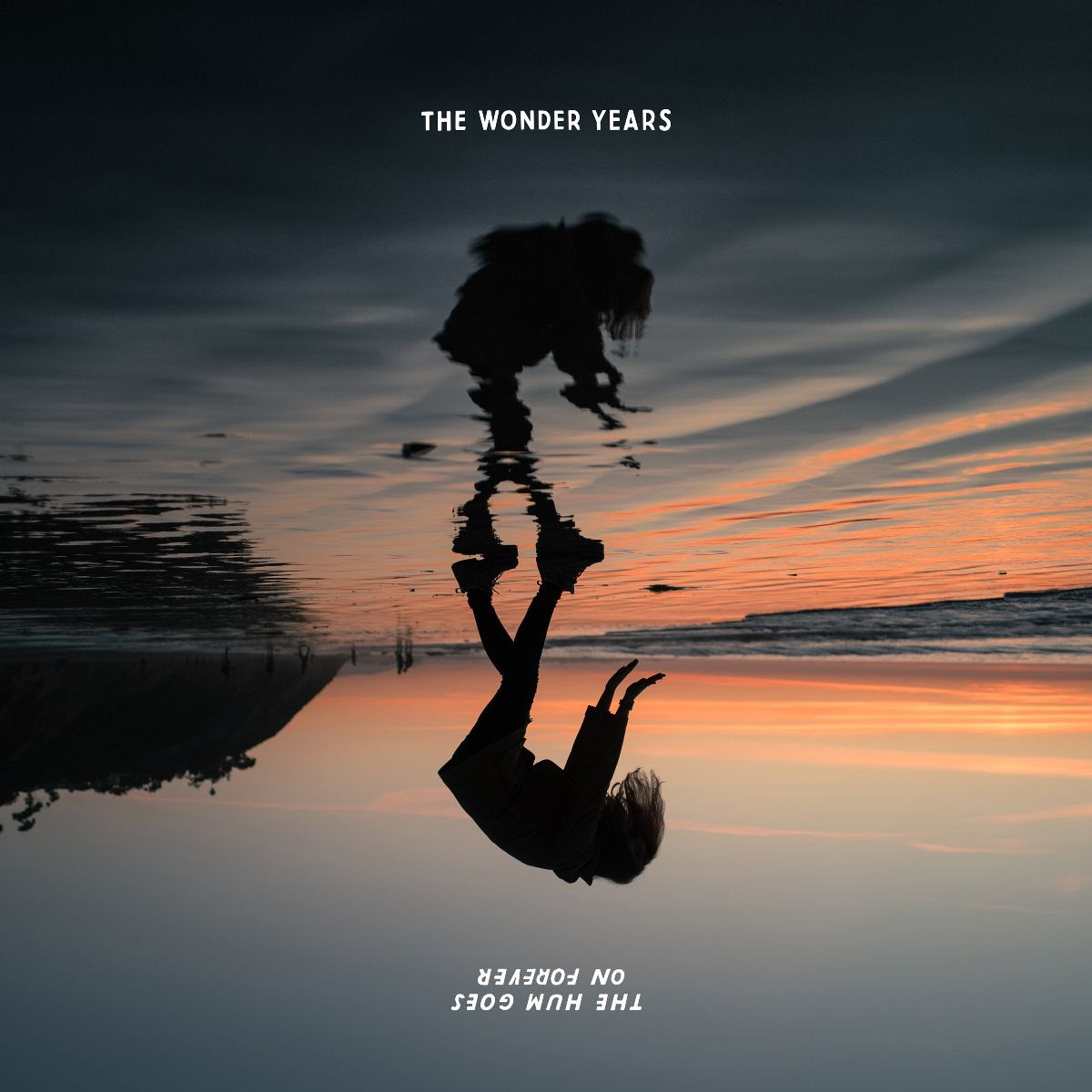
Listen to The Hum Goes On Forever


